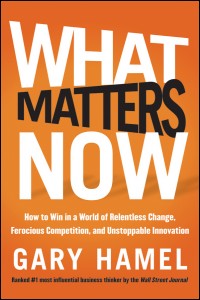Real estate companies spend a lot
of time, effort, and resources managing their consumer brands…and rightfully so. If someone is going to buy or sell a home,
the perception the individual has of your company’s brand will play a major
role in their choice of an agent.

Think of the emotions you’d like a
consumer to experience when they think of your company. Maybe these are some of the things your brand stands for: well-established,
trusted, experienced, competent, dependable, innovative, phenomenal customer
service, etc.
While all these are great
attributes and characteristics that most any consumer would desire in a real estate
company handling a transaction, they may cloud the water when it comes to
representing yourself to potential candidates…especially when it comes to younger candidates.
Many well-established companies
are struggling with this issue. Not
everyone can be Zappos (a progressive online retailer based in Las Vegas),
Kixeye (an edgy game developer that makes Entertainment Arts and Zynga look like
fuddy-duds), or even Zillow. In fact,
many companies need to be seen as dependable, but still desirable places to work
for the younger generations.
Much has been written on this
topic, and there are some companies that have spent fortunes trying to reconcile this
dichotomy. One of the most successful
case studies is this effort is Enterprise Rent-a-Car. Started in 1957, Enterprise now has more than
5,000 offices in North America. Enterprise is not exactly an exciting new startup company, and yet is consistently named
one of the top companies in the United States for launching a career. Take a look at the Enterprise Career site and see how masterful they’ve become at solving this problem.
But, what if you don’t have the
resources to build a far-reaching branding campaign to make such a distinction
between your consumer brand and your employment brand? There is still much you can do to make this
a reality—especially if your cognizant that a distinction needs to be made.
The most natural place for a
hiring manager to start transforming
your employment brand is during the interviews you’re conducting with younger
candidates. This approach is low cost
and can have a profound impact on your office as you bring in new hires who are
the flesh and blood realities of your employment brand.
 To interview younger candidates
To interview younger candidates
more successfully, you’ll need a better understanding of what they see as
interesting and engaging in a potential employer.
To help in this effort, I’d like
to point you to some insight provided by Gary Hamel, best-selling author and
professor at the London Business School.
Last March, Dr. Hamel published What Matters Now, an insightful book on
change, competition, and innovation. And recently, he followed-up with an ERE article, connecting the principles
in his book to the topic of hiring the next generation of top performers.
More specifically, Dr. Hamel
addresses the mindset that young candidates consistently display in evaluating
whether an established company is “with it” or “past it.”
The article highlights 12 of these
mindsets, but I’ve selected the five that I find most insightful:
1.
Contribution counts for more than
credentials. When you post a video to YouTube, no one asks you if you went
to film school. When you write a blog, no one cares whether or not you have a
journalism degree. Position, title, and academic degrees — none of the usual
status differentiators carry much weight online. [In progressive companies],
what counts is not your resume, but what you can contribute.
2.
Tasks are chosen, not assigned.
The internet is an opt-in economy. Whether contributing to a blog, working on
an open source project, or sharing advice in a forum, people choose to work on
the things that interest them. Everyone is an independent contractor and
everyone scratches his own itch.
Progressive companies encourage work to be done in this way as well.
3.
Power comes from sharing, not hoarding. The Web is also a gift economy. To gain influence and status, you have to give
away your expertise and content. And you must do it quickly; if you don’t,
someone else will beat you to the punch and garner the credit that might have
been yours. [In progressive companies], there are lots of incentives to share
and few to hoard.
4.
Mediocrity gets exposed. Online rating systems have become ubiquitous — for hotels, books, local
businesses, and products of every sort. Though not every review is useful, in
the aggregate they provide a good guide to what’s remarkable and what’s rubbish. In traditional organizations, employees don’t get to rate much of anything. As
a result, one often finds a ‘‘conspiracy of the mediocre’’ — ‘‘I won’t question
your decisions or your effectiveness, if you don’t question mine.’’ There are
no such cabals [in progressive companies]. If you’re inadequate, you’ll be found
out.
5.
Leaders serve rather than
preside. [Among progressive
companies], every leader is a servant leader; no one has the power to command
or sanction. Credible arguments, demonstrated expertise, and selfless behavior
are the only levers for getting things done. Forget this [in your
organization], and your followers will soon desert you.
If you’re interested in the other
seven mindsets, read the rest of Dr. Hamel’s article. If you’re more strategic and want to change
how your company operates, you may want to pick up his book.
Here is the bottom line: These mindsets will resonate with the younger
candidates that you’re interviewing. Also, many of these principles dovetail nicely into the business processes and culture that most hiring managers are trying to create and maintain. There is a win-win in this
connection and something that can differentiate you from those stodgy
competitors who are in an increasingly weak position to lure your candidates
away.
 Editor's Note: This article was written by Ben Hess. Ben is the Founding Partner and Managing Director of Tidemark, Inc. and a regular contributor to WorkPuzzle. Comments or questions are welcome. If you're an email subscriber, reply to this WorkPuzzle email. If you read the blog directly from the web, you can click the "comments" link below.
Editor's Note: This article was written by Ben Hess. Ben is the Founding Partner and Managing Director of Tidemark, Inc. and a regular contributor to WorkPuzzle. Comments or questions are welcome. If you're an email subscriber, reply to this WorkPuzzle email. If you read the blog directly from the web, you can click the "comments" link below.

